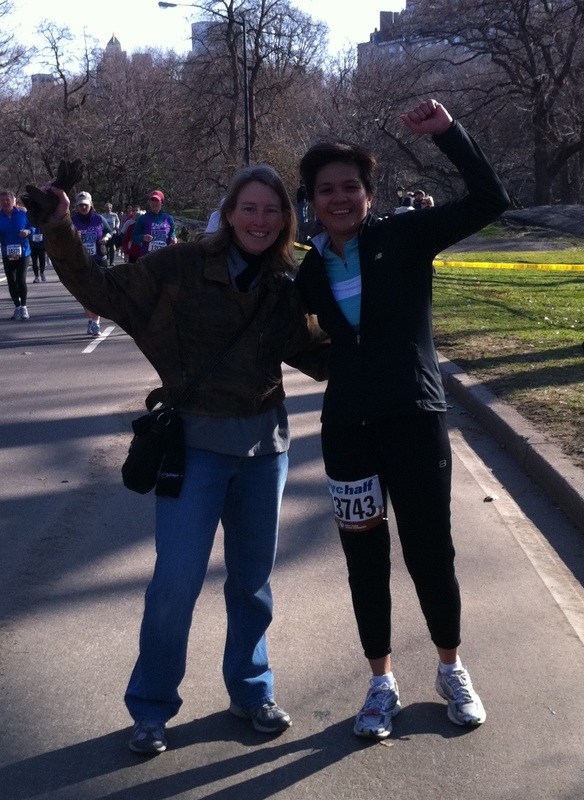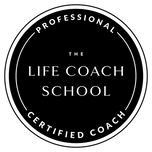 My new car is giving my old car the once over. My new car is giving my old car the once over. There is some evidence that the gluten-free diet reduces painful symptoms of endometriosis. Of course, I didn't know I had endometriosis or a big fibroid until a couple of months ago. I've been on the gluten-free diet for several years, and all I can say is, boy, I guess I would have been really miserable now if I hadn't gotten the celiac diagnosis in 2010. There is also an indication that women with endometriosis are more likely to have celiac disease (here's a link to a good summary.) I'll admit that I might have been one of the handful of women in the western world that didn't really know what fibroids or endometrial cysts were until recently, but my easy and highly technical explanation for those who are also unaware is that there is a bunch of extra goop and blobs of stuff that should have been reabsorbed into my body that have attached themselves to my uterus and ovaries, and maybe other internal organs or surfaces. Doctors are fond of comparing these tumors to the sizes of various food items. So, to give you some scale, my fibroid, which has fully engaged the interior, wall and exterior of my uterus, is around the size of a tangelo. My right ovary, which should be the size of an almond, is more the size of an avocado. I recall that my mom had an ovarian cyst in 1973 (maybe they would call it an endometrial cyst now?) was the size of a grapefruit. Goodness! These things cause fertility problems, but for women like me who don't want to get pregnant, mostly the medical community suggests trying to wait these things out. Once menopause comes along, nature takes its course and the things shrink or go away. One big symptom is painful and heavy periods, and once a woman doesn't have a period anymore, then no big whoop. Women are supposed to be able to bear a great deal of discomfort and blood loss on a regular basis, right? I do sort of agree with the "wait it out" approach. I'm not one to over-medicalize a situation if I don't need to. However, I have been anemic for the better part of 30 years. My anemia piqued my hematologist's suspicions that celiac might be the cause. Turns out he was right about celiac, but the anemia hasn't substantially improved as a result of the gluten-free diet. I still go for regular iron infusions through an IV drip, a process that takes more than two hours in a chemo ward overlooking Washington Square Park, usually once a month. I have continued to search for (and so far, rule out) other possible causes of blood loss. For example, I've had an endoscopy and colonoscopy to confirm that the lining of my small intestine has healed, and I don't have ulcerative colitis. Which brought me back to menses, the thing my doctors told me all along was the cause. But how does a person know if her period is unusually heavy? Sure, it seems heavy to me, but I've heard stories from other women that make my monthly tale a mere trifle. Plus, for every visit to the gynecologist in my adult life, I have mentioned painful cramps and heavy bleeding. To a person, they've told me that if I would just get pregnant it would all get better. Or how about I go on the pill? I did try the pill once maybe 10 years ago, the kind that you just take and take all the time and never have another period (Yasmine, which I see on the class action commercials apparently caused some women A LOT of problems.) I took it for maybe 3 weeks, when I experienced "breakthrough bleeding" while wearing khaki pants on a light green cloth sofa (fortunately I hadn't left for work yet!). I decided I'd rather bleed when expected and I never liked the idea of jacking myself up on hormones anyway, so I stopped taking it. So as I closed in on "heavy monthly blood loss" as my cause of anemia, I was mentally debating whether I would be open to the hormone discussion again. It was my primary doctor who told me that the anemia had really gone on too long and that I should consider a hysterectomy. I didn't think an insurance company would pay for an expensive intervention if they could just throw pills at me, but she assured me that the monthly iron infusions were enough evidence that the hysterectomy was a medically sound next step. First though, I'd need an ultrasound to see what was going on. Then I'd need to find a gyn (my Yasmine provider isn't practicing anymore), and not just any gyn, but one that specializes in women's bodies specifically and not in childbearing issues. The ultrasound indicated a fibroid and an enlarged ovary, so when I met with the doc, she said H word (hysterectomy) along with some other options, but that I needed to have an MRI to get a better idea of what would be required. Off to the MRI people (my first time for this procedure too. I don't get especially freaked out in small spaces for short durations, so no big deal, though I had no idea how loud it would be.) Then back to the gyn, who confirmed that the fibroid's occupation of my uterus' interior, walls and exterior would indeed require a hysterectomy. And then there were these endometrial cysts. I'm not sure how much of that is going on, other that it's the cause of my enlarged ovary. I'm hoping to keep one ovary to postpone the onset of menopause for as long as possible. So, in the months and weeks leading up to the surgery, which is now scheduled for next week, I've taken the following steps to prepare: 1. I had one last unpleasant period, for old time's sake. 2. I called my cousin the nurse to find out what a hospital stay would be like, since I haven't been hospitalized in almost 30 years. 3. I polled my celiac friends and acquaintances and discovered that I should, in no way, shape or form, trust the hospital food service to not serve me cross-contaminated food. 4. I discovered a great website, www.hystersisters.com and learned what pre and post op life would be like from real women who've lived it. 5. I've learned that LOTS of women in my life have had some version of this done. They were all appropriately supportive and gave me an idea of what would hurt and for how long. 6. I did my best to get all my work projects in good shape, or in the hands of a team member or colleague who will guide them through until my return. There's a bit of guilt and worry associated with being out of the office for 6 weeks, but I work with some really great people who want what's best for me and who will help pick up the slack in my absence. 7. I bought a new (used) car. Okay, I was planning to do this anyway, but the research and test driving and all that were a fun distraction in the weeks leading from scheduling the surgery to going under the laproscopic knife. And there was a tiny bit of mid-life crisis rolled into it. Sure, I kept it practical and inexpensive by picking a 4-door hatchback Kia Soul! (31 MPG highway), but I was determined to have a stick shift, a sunroof and CD player. And not only that, but the one I found is orange with a black racing stripe AND a spoiler! 8. I want to mow the lawn and clean the bathrooms, since I don't think I'll be able to do that for awhile. I've also been imagining where I'd like to spend my time immediately after surgery when mobility is low. And I've been thinking about low energy activities and projects that I can work on so that I don't get blue. The list includes sitting in my new used car and reading the owners manual to figure out how to operate all the stuff I've never seen in a car before. Apparently I can just tell it to call people. What? Lots of people have suggested I watch their favorite TV series from the beginning of time. Maybe. But I picture myself scanning our wedding and other pre-digital photos, or working on my next e-cookbook with either HGTV or Xena reruns on in the background. And walking. Lots of walking. I'll keep you apprised. According to a recent study by the University of Chicago Celiac Disease Center, 43% of those of us with celiac disease are not at our ideal weight. Whether working to lose, gain, or maintain, many of us have to pay a lot of attention to what we eat and how much we exercise in order to get and stay healthy. It's especially hard to do when there are significant distractions that pull us off our A-game with our resolve to stick with a meal plan or exercise regimen. That's when I most need to go on autopilot -- that is, take the thinking out of the mix, and stick with the plan as scheduled.
The key, of course, is to have a plan in the first place. Frankly, I think most of us do have some sense of what will sufficiently nourish us to meet our goals. It's when we fail to plan or get distracted and pulled off track that we wake up one morning, pull on a pair of pants we haven't worn in a couple of months and discover that they don't fit anymore. I hate when that happens. In my world, summer is over, the kids are going back to school, and things at my Day Job are getting a bit hectic. It's more important than ever that I implement The Plan. For me, that means eating a diet that has a high nutrient-to-calorie ratio, a la Dr. Joel Fuhrman's Eat to Live program. Essentially that means that I eat a lot of vegetables and legumes and sparingly eat refined carbs and animal products. I have to plan ahead, I need support, and I need accountability. Menu planning, shopping and cooking happen on the weekends, I have help from an online support program called PEERtrainer, and I use a smart phone and web app called LoseIt! to track what I eat to provide the accountability, at least to myself. I also weigh myself every morning, but I track my progress for real on a weekly basis and dismiss daily fluctuations that don't jibe with my perception of my actual effort to stay on plan. As for exercise, it's easy to let it fall by the wayside when times get busy. My tried and true method is to get up 45 minutes early every day and just get it done. I feel virtuous all day, and usually more relaxed and energetic. Lately I've been biking, but I also like running (okay, jogging). Sometimes I walk briskly. Sometimes I do high intensity interval training (HIIT), but I've found I don't stick with it very long, and the real key is finding something that's adequately entertaining so that I stay with it. When the weather turns bad, I turn on the TV... and do a workout video or a Wii Fit workout program like EA Sports Active. I also have a $10/month gym membership that I use just often enough to feel like I got my $10-worth. When I go to the gym, I do the 30-minute express weight/cardio interval circuit. I found that I understand all of those machines, it works every body part, and there's hardly ever anyone else in the corral of machines. Since I'm already there, if I have time I'll usually throw in some extra cardio on an elliptical machine or treadmill. I have to plan the night ahead what exercise I will be doing the next morning, so that I have the right clothes or gear handy. Mostly it depends on the weather and if I need to leave early for work. The key is having a plan so that when I wake up in the morning, I don't have to decide then. I've learned that it's VERY easy to hit the snooze alarm multiple times when I leave the decision-making up to my theta-wave brain. I know that real exercise experts would scoff at my workout regimen, and that's okay. I know that if I develop a real goal I'll have to make a plan that includes milestones and all that (I've been flirting with the idea of a run-bike-run sort of duathlon because my very cool friend Kia does them, but don't tell anyone.) I help people develop meal plans and stay on track to meet their healthy weight goals. E-mail me to set up a free half-hour consultation to discuss your goals. |
Archives
January 2024
|


 RSS Feed
RSS Feed
